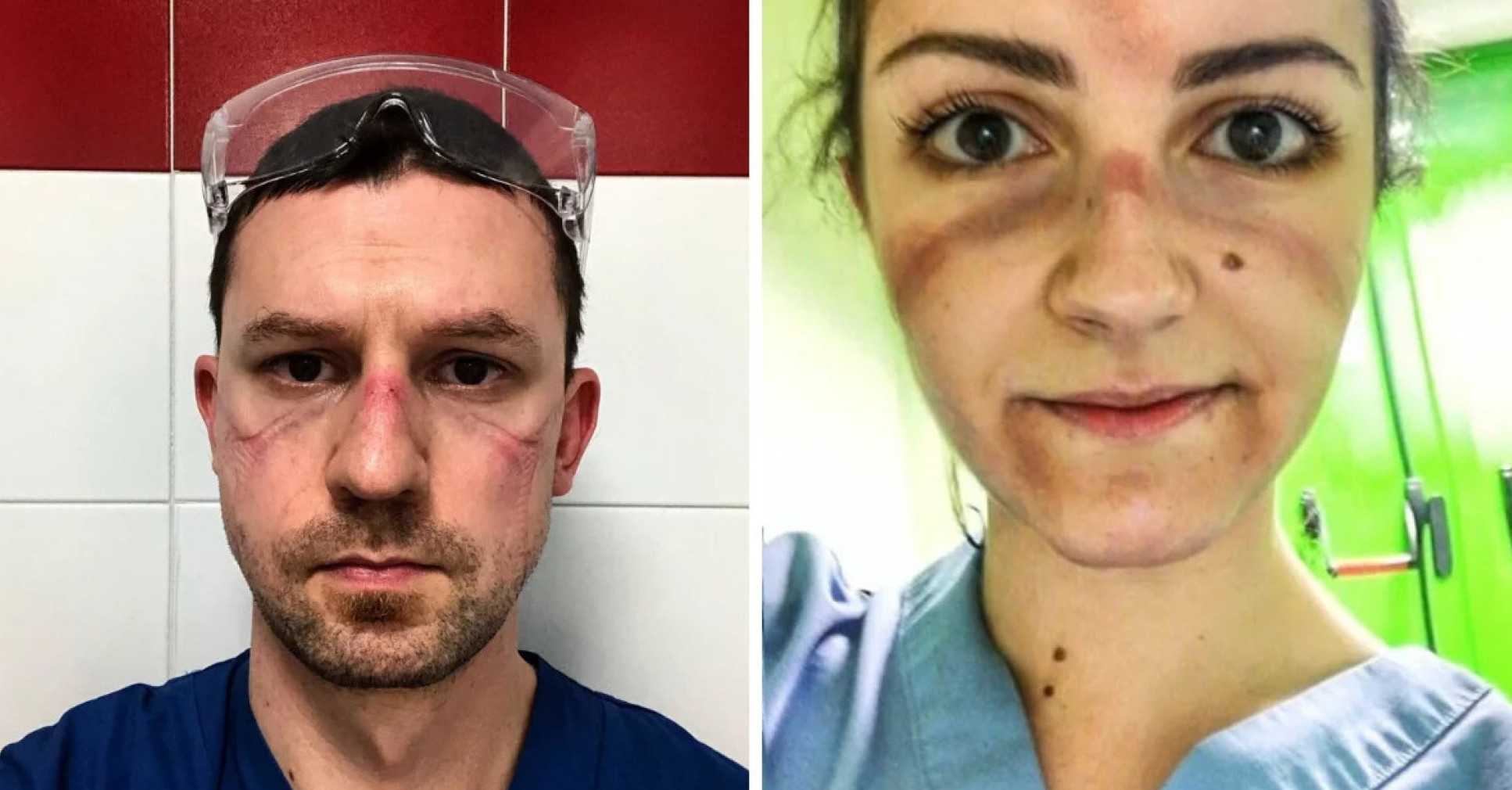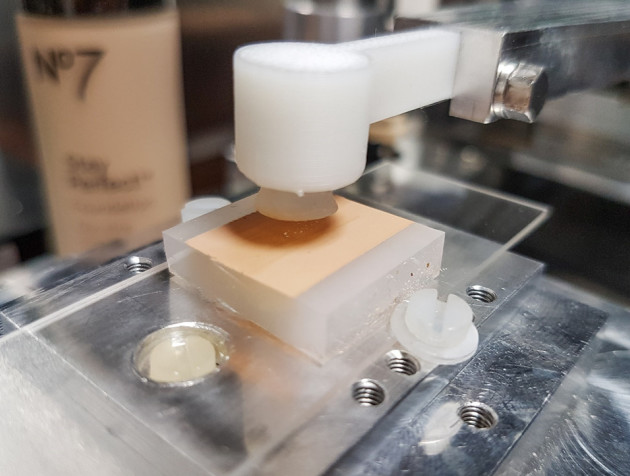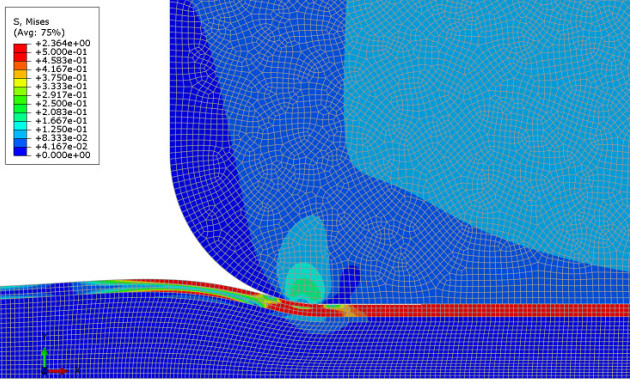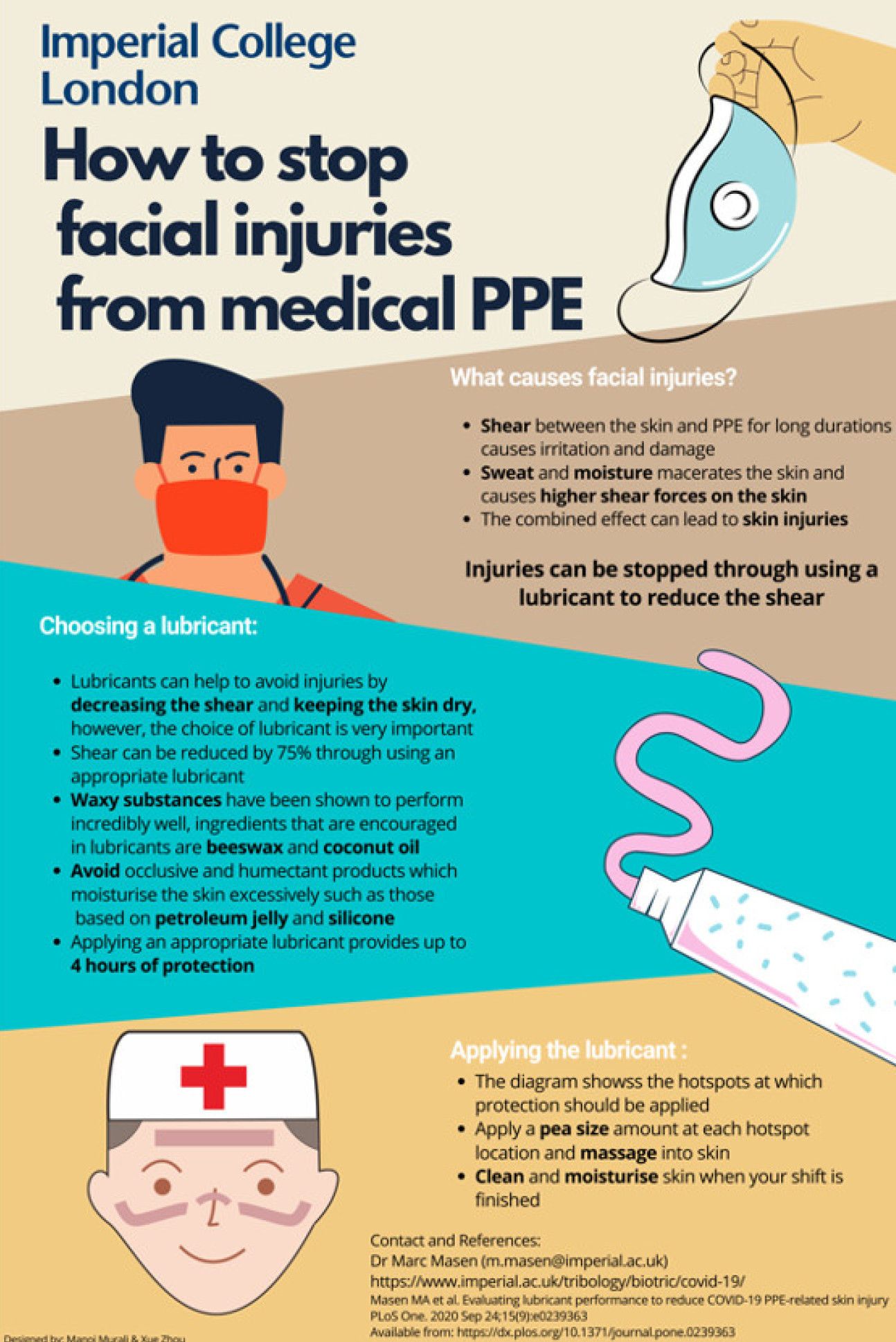Preventing Skin Injury due to PPE During the COVID-19 Pandemic
Updates
- Our first paper on evaluating lubricant performance to reduce PPE-related skin injury was published in PLoS ONE - see the related press release.
-
Our second paper on the development of wax-oil lubricants to reduce the shear between skin and PPE waas published in Scientific Reports.
- Our third paper on the numerical analysis of skin-PPE interactions was published in Scientific Reports.
-
A PPE-skin health poster is avaiable at the bottom of this page.
Introduction
Personal protective equipment (PPE) such as surgical masks, respirator masks, goggles and face shields are important tools in the battle against COVID-19 infection, both for medical personnel and the general public. However, the prolonged wearing of PPE causes skin issues including discomfort, irritation and even injury. The seriousness of the situation at the start of the COVID-19 pandemic in hospital wards around the world was relayed through social media pictures of medical staff with face mask-related skin injuries. The underlying mechanism causing the injuries are the shear forces acting on the skin and in our research, we aim to investigate how to reduce these forces and provide solutions for people who wear PPE.

Source: Instagram (covid_nurses) https://www.instagram.com/covid_nurses/
Our Research into PPE-Skin Interaction
Phase 1: Experimental investigation of lubricants to improve skin-PPE interaction
The regular application of skin creams has been suggested to reduce shear loading on the skin. We investigated the friction performance of a range of commercially available products including waxes, lubricants and moisturisers, and found that most waxes perform well for up to 4 hours. In addition, we found that most commercially available moisturisers actually increase friction and therefore their use should be avoided.
Phase 2: Optimising the interaction between skin and PPE for longer durations
To enable PPE to be worn for longer durations, the interaction between the skin and the PPE needs to be improved. This requires optimised lubricants to reduce the shear forces acting on the skin, as well as a redesign of the PPE using alternative materials and/or surfaces.
Our team are currently developing lubricants that provide long lasting low friction. Scoping experiments are being performed on the Biotribometer (BTM) from PCS Instruments (see right). Promising lubricants will move to the next stage of investigation using in vivo testing measured using a portable skin tribometer.
In addition, we are developing Finite Element Models (FEM) to investigate the effects of face masks, respirator masks, visors and  goggles (see right). The design criteria include reducing internal stresses and excessive deformation of skin, which would result in local injury.
goggles (see right). The design criteria include reducing internal stresses and excessive deformation of skin, which would result in local injury.
The Team
This research is being carried out by the Biotribology Group in the Department of Mechanical Engineering at Imperial College London. The research is funded by Imperial's COVID-19 Response Fund.
Dr Marc Masen is a Senior Lecturer in the Department of Mechanical Engineering and is  the Principal Investigator (PI) on this project.
the Principal Investigator (PI) on this project.
Dr Zhengchu Tan is a postdoctoral researcher in the Tribology Group. In this project she is running the experimental programme.
Eulalia Escudero is an MSc student in the Department of Mechanical Engineering working on the modelling of skin-soft foam contact.
Jack Hayes graduated from the University of Liverpool and commenced his PhD as part of the EPSRC CDT in Prosthetics and Orthotics in October 2020.
Rikeen Jobanputra is a PhD student in the Tribology Group working on numerically modelling tactile perception. In this project he is developing computational models for PPE interaction against multiple facial locations.
Manoj Murali is a PhD student in the Tribology Group investigating water-based lubrication. In this project he is working on lubricant development and outreach.
Sravani Royyuru recently graduated with an MEng in Mechanical Engineering from Imperial College London on a project developing comfortable low-cost prosthetics. In this project, she is focusing on alternative PPE materials.
Kian Kun Yap is a PhD student in the Tribology Group investigating the wear mechanisms of extreme performance polymers. In this project he is coordinating lubricant development.
Xue Zhou is a visiting PhD student in the Tribology Group, from Southwest Jiaotong University, China. Her research project is on tactile perception. In this project she is focusing on lubricant development and outreach.
More information about the project can be found here.
